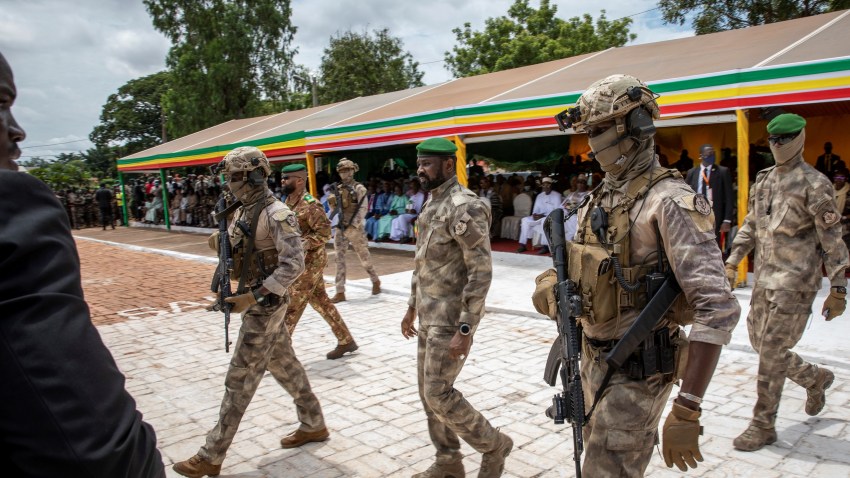In late November, Ghanaian President Nana Akufo-Addo hosted a summit of heads of state and government of the Accra Initiative, attended by Beninese President Patrice Talon, Togolese President Faure Gnassingbe and Ivoirian Prime Minister Patrick Achi, among others. Launched in 2017 in response to growing insecurity in West Africa, the initiative offered a collaborative security mechanism to share lessons on the region’s common security challenges, including terrorism, violent extremism and transnational crime, while focusing on three areas: training, cross-border military operations and information- and intelligence-sharing.
In 2018 and 2019, its original member states—Burkina Faso, Cote d’Ivoire, Ghana, Togo and Benin—conducted joint military operations on their borders, which resulted in the arrests of about 700 suspected terrorists and gang members, and the seizure of homemade weapons. And in 2019, Mali and Niger were admitted into the group given their proximity to coastal West African states and their experience in combating violent extremism. But overall, the Accra Initiative has accomplished little in the way of results.
Now, as the twin crises of political instability and violent extremism in West Africa’s Sahel region deepens, regional leaders are seeking ways to prevent the spillover of both phenomena to West Africa’s littoral states. That explains why one of the outcomes of last month’s gathering was the official launch of the Multi-National Joint Task Force of the Accra Initiative, which according to a joint communiqué will be mobilized “within a month.” The task force consists of 10,000 soldiers, most of whom will be stationed in Tamale, Ghana, with an intelligence outpost in Ouagadougou, Burkina Faso’s capital. The mission is aimed at preventing terrorism, illegal resource extraction, drug trafficking, dealing in illicit arms, smuggling and other transnational crimes. Such a task force has been mooted since the group’s first conference back in 2017, but the need for it has now grown more urgent amid the region’s rapidly evolving security landscape.

